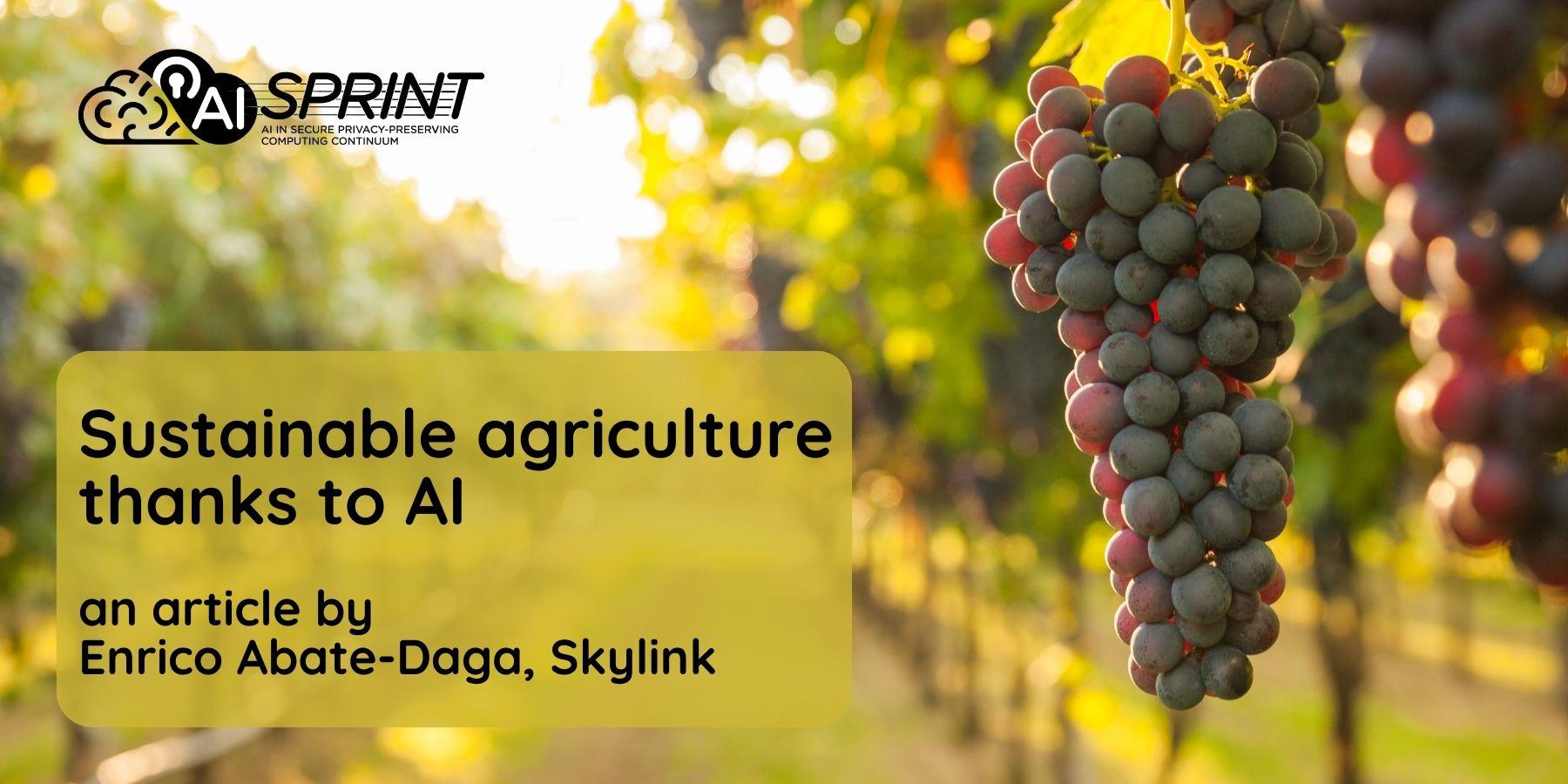
- 31 July 2023
More and more people are becoming aware of the importance of a healthy diet and are questioning the origin of their food. This does not make life any easier for food producers, especially in the agriculture sector. A key challenge for farmers is to protect plants from pests and diseases. The aim is to use as few pesticides as possible, or none at all, that can harm the environment and our health. That’s where modern technology can help.
Our project partner, Enrico Abate-Daga, from Skaylink, provides his point of view on how the AI-SPRINT project can help in this matter.
"Skaylink is part of the European AI-SPRINT initiative, which aims to develop and implement innovative solutions based on Artificial Intelligence (AI) for smart and sustainable agriculture. Our role in this project is to partner with the agricultural machinery manufacturer Gregoire, a leading manufacturer of vineyard sprayers.
In this context, the Skylink team asked themselves how they could reduce the amount of pesticides sprayed. In an ideal world, it would have to look like this: The spray vehicle analyses each plant from stem to leaf and measures the exact amount of spray to be applied. This amount is then sprayed onto the plant with pinpoint accuracy. What seems impossible with conventional means, we want to solve with modern technology. So they worked on improving Gregoire’s sprayers by giving them “smart eyes”.
Computer vision enables machines to see and understand images. Based on this, we have developed a system that processes images captured by a camera on the front of the sprayer in real-time. The system uses sophisticated algorithms to detect the leaf density of each plant and calculate the optimum amount of pesticide to apply. A controller adjusts the spray nozzles according to the computer’s instructions. The system then sends signals to the controller, which regulates the flow and pressure of the pesticide solution through the nozzles. In this way, they can ensure that each plant receives only the most necessary pesticides to protect it from pests and diseases.
This system has many advantages:
- First, it reduces the environmental impact of pesticide use by minimizing waste and wastewater.
- Second, it improves the quality and safety of our food by reducing pesticide residues in food.
- Third, it saves farmers time and money by optimising their resources and increasing their productivity.
- Fourth, it improves the well-being and health of farmers by reducing their exposure to harmful chemicals and physical fatigue.
We are currently conducting the first tests of the system in vineyards. We believe that our system can make a difference not only in viticulture, but also in other forms of agriculture such as fruits, berries and vegetables."
Dive into Farming 4.0: Discover the Endless Advantages on Our Use Case Page
Would you like to learn more about the Farming 4.0 use case? Join our free webinar on 21 September!